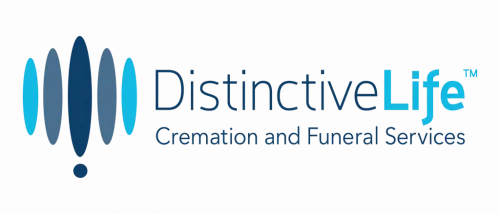by Leslie Farin
When my mom died, not unexpectedly, it was somehow still a surprise. I guess we just did not expect it to happen that day. And though we felt we lost her months earlier when her illness began to ravage her mind and body, her passing still felt like a tremendous loss, nonetheless. It was just so final. Dad retreated into himself, consumed with grief. He managed to pull himself together well enough to tell me to go to the funeral home where he said he preplanned all the arrangements.
“Everything is taken care of”, Dad said.
Upon meeting with the funeral director, I learned that Dad purchased two plots ten years earlier. That’s it, just the plots. Don’t misunderstand – that’s a good first step. Buying plots in advance locks in the price, which is generally a great deal less than the cost would be if you wait to purchase until it’s needed years later. But truly, the plots are the easy part; there are so many more decisions that need to be made and expenses to consider.
There’s More to Preplanning Your Funeral Than Buying a Plot
Buying a cemetery plot is just the beginning. There is so much that happens at the end of life and a whole lot more to consider than the plot. Dad truly believed everything was all set at the funeral home and that all we needed to do was make one phone call when the time came to lay mom to rest. It’s a common belief that buying a plot in advance is all that needs to be done, and until this experience, I thought the same.
That day, I spent four hours with the funeral director answering questions about Mom’s specific wishes, many of which I was unable to answer knowledgeably. Why didn’t any of us have this conversation with Mom years ago? The reason is that people, Mom included, don’t like to talk about death. I understand that, but I also think that not communicating about end-of-life wishes puts a huge burden on family members at an already difficult time. I did not know what she wanted and while Dad likely did, he was not up to helping make the decisions. So, I was on my own.
What type of casket? Open casket or closed? What clothes would she wear? A chapel or gravesite funeral? Is there a charity that your loved one would like to designate for donations instead of flowers? What about music and are there specific favorites to include in the ceremony? The list goes on and on.
Funeral Expenses Are Overwhelming
I do not know what the plots cost when Dad purchased them, but I can tell you that I wrote checks for $12,000 that day at the Funeral Home. None of us realized that there are many additional costs associated with a funeral. For example, there were charges for the cemetery and memorialization services, the casket, and the funeral arrangements including clergy and transportation. Again, the list of options, and therefore expenses, is long.
On a day when all I wanted to do was focus on my grief, I found myself in a funeral home for hours with a stranger. The funeral director was a kind man who did his best to make the process as easy as possible for me, but he was still a stranger. I really wanted to be home with my family. I wished Mom had pre-planned for her funeral to both take care of the expenses and to take the burden off me to try to ensure her wishes were met and honored.
Funeral Homes and Cemeteries Are Not Related – Who Knew?
I had no idea that funeral homes and cemeteries were not related. These establishments often aim to offer one-stop convenience with both services under the same roof and may even be owned by the same company. Though they may share a name and a building, they are separate businesses with separate accounting systems. It’s confusing.
I wish I knew when Mom passed that I had options for which funeral home to use. Just because Dad purchased the cemetery plot at a specific location did not mean I had to use the funeral home located on-site. I learned later that the costs related to funeral services vary significantly between funeral homes. Who is in the frame of mind to shop around during an emotional crisis? We should have done this research in advance.
That day I simply did what was easiest, which turned out wasn’t in our best interest from a financial standpoint. I purchased all the services from the funeral home located at the cemetery with the plots. I was an emotional wreck that day and did not question the prices. Families need to understand that doing business with a cemetery and a funeral home that seem to work together will not automatically lead to lower prices than they could find elsewhere.
According to Zane Belyea, co-owner of Distinctive Life Cremation and Funeral Services, our recommended provider with locations in Dallas and Houston, you don’t have to overpay for your funeral expenses. He explains that:
“Not only are the services comparable regardless of the location of the Funeral Home, but the products are virtually the same. There are a limited number of casket manufacturers out there and every funeral home has access to the same quality merchandise as the other. Often your “higher-end” Funeral Homes will try to justify their outrageous costs claiming they use only the best when in fact, they are probably selling the same merchandise as the Funeral Home down the street that is charging several thousand dollars less.”
So, Should You Plan Ahead?
Preplanning, also called preneed, is a thoughtful gesture to those you love. It is a type of arrangement that allows individuals to make financial, legal, and other arrangements in advance of their death. With this type of contract, individuals designate how they want to be buried or cremated, arrange for payment of funeral expenses, and set up trusts or other arrangements to benefit survivors. These arrangements provide peace of mind both for those who make them and their families. It’s a matter of taking the time to think about, and record, your end-of-life wishes.
My husband and I decided to start the pre-planning process after our experience with the arrangements for my mom. We want to let our family clearly know our wishes and relieve them of the burden of having to make difficult decisions on our behalf. We also want to provide easy access to funds to pay the expenses, purchased in advance from a trusted professional and protected from inflation. With pre-planning, no matter where we reside in the U.S. at the time of our passing, or which funeral home with whom we choose to work, the plan is transferrable.

FAQs About Preplanning Your Funeral
Below are some commonly asked questions related to preplanning your funeral arrangements The better individuals and families understand the process, the easier it is to make informed decisions.
What is funeral preplanning?
Preplanning for a funeral involves making decisions and arrangements for your own funeral (or for a loved one) in advance. It allows you to outline your preferences and ensure your wishes are followed.
What are the benefits of pre-planning your funeral?
Preplanning offers several benefits, including:
1. Ensuring your wishes are honored.
2. Relieving your loved ones of the emotional and financial burdens.
3. Locking in current prices for funeral services.
4. Providing peace of mind for you and your family.
Ideally, when should you start the process of preplanning your funeral?
You can start preplanning at any time, but it’s often a good idea to do so when you’re in good health and able to make thoughtful decisions.
Do I have to prepay for my funeral when preplanning?
Prepaying is optional. You can choose to preplan without paying all costs up-front, but prepayment locks in current prices.
Is prepayment refundable if plans change?
The refund policy depends on the funeral home or provider you choose. Be sure to inquire about the terms and conditions of prepayment.
What happens to the preplanning funds prepaid if the funeral home goes out of business?
Funeral preplanning funds are typically held in trust or with an insurance company to protect them in case the funeral home closes.
Can I make changes to my preplanned funeral arrangements?
Yes, you can usually make changes to your preplanned arrangements at any time, whether it’s regarding your preferences or budget.
What happens to my preplanned arrangements if I move to a different location?
Preplanned funeral arrangements can often be transferred to a different funeral home if you move to a new area. Check with the original provider and the new one for guidance on the transfer process.
When preplanning a funeral, it’s essential to work with a trusted funeral provider and ask any questions you have to ensure you understand the process fully. This can help you make informed decisions and create a plan that reflects your wishes and values.

Considerations for End-of-Life Arrangements
Preparing for end-of-life arrangements is an important and sensitive process. There’s much to think about and it can feel overwhelming. Here are some general guidelines to help you or your loved ones prepare as you begin to think about preplanning.
Discuss Your Wishes:
- Have open and honest conversations with family and loved ones about your end-of-life wishes, including burial or cremation preferences, funeral or memorial service desires, and any specific religious or cultural customs.
Choose a Healthcare Proxy and Create Advance Directives:
- Appoint a healthcare proxy (power of attorney for healthcare) to make medical decisions on your behalf if you become incapacitated.
- Create advance directives, including a living will, to outline your medical treatment preferences and end-of-life care instructions.
Legal and Financial Matters:
- Review and update your will or establish one if you haven’t already.
- Create a durable power of attorney to manage financial and legal matters on your behalf if necessary.
- Consider setting up a living trust to avoid probate and facilitate the transfer of assets.
- Organize important legal documents, such as birth certificates, marriage certificates, and property deeds.
Funeral and Burial Preferences:
- Decide whether you prefer burial or cremation.
- Specify your choice of burial plot or location for ashes.
- Outline any specific wishes for your funeral or memorial service, including music, readings, or cultural rituals.
Funeral Prearrangements:
- Choose a funeral home or crematorium and discuss your preferences with them.
- Make arrangements for the type of service, casket or urn, and any other details.
- Consider prepaying for funeral expenses, if desired.
Financial Planning:
- Prepare a budget or estimate for end-of-life expenses, including medical bills, funeral costs, and outstanding debts.
- Ensure there are funds available to cover these expenses, either through savings, insurance policies, or designated accounts.
Life Insurance and Beneficiaries:
- Review and update your life insurance policies, if applicable.
- Verify and update the beneficiaries listed on your policies and retirement accounts.
Digital Assets:
- Create a list of your digital accounts, usernames, and passwords, and provide instructions for what should happen to these accounts after your passing.
- Consider designating a digital executor to handle your online presence.
Organ Donation and Body Donation:
- If you wish to donate organs or your body to science, ensure you have the necessary documentation and registrations in place.
Notify Key Individuals:
- Share your end-of-life plans and the location of important documents with a trusted friend, family member, or attorney.
Create a Medical Information Binder:
- Compile essential medical information, including a list of medications, medical conditions, and contact information for healthcare providers.
- Keep copies of your healthcare proxy and advance directives in this binder.
Review and Update Regularly:
- Periodically review and update your end-of-life arrangements as circumstances change.
Consider Funeral Prepayment:
- If you wish, investigate and discuss prepayment options for your funeral expenses with a reputable funeral home.
Plan for Your Digital Legacy:
- Decide how you want your online presence to be handled after your passing, including social media accounts, email, and personal websites.
Communicate Your Plans:
- Inform your loved ones and healthcare providers of your end-of-life arrangements and where the relevant documents can be found.
It’s crucial to involve loved ones in these discussions and decisions to ensure that your end-of-life arrangements align with your wishes and provide peace of mind for both you and your family. Consulting with legal and financial professionals can also be beneficial to ensure that all aspects are appropriately addressed.
Note: Learn more about our preferred provider, Distinctive Life Cremation and Funeral Services, on their WEBSITE. or contact them for information via EMAIL or by phone at 972-424-1144.











